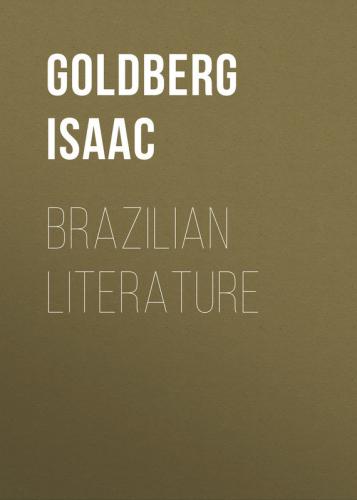In his epic he underwent the influence of Gonçalves Dias, as did Manoel de Araujo Porto-Alegre (1806-1879) in his Brazilianas (1863). This noted painter was also affected by the free metrical structure of the Suspiros of Magalhães, as he revealed in A voz da Natureza of 1835. The boresome epic Colombo, seeking inspiration in the great discoverer, is commendable for imagination rather than truly creative poetry.
Gonçalves Dias is more lyrical in spirit than Magalhães, who was rather the meditative worshipper. The poet of nature was the first to reveal to Brazilians in its full significance the pride of nationality, to such an extent, indeed, that his “Americanism” became a blind hostility toward Europe as being only a source of evil to the new continent. In him flowed the blood of all three races that make up the Brazilian blend and he has celebrated each of the strains, – the Indian in Os Tymbiras, Poema Americano, the African in A Escrava, the Portuguese in the Sextilhas de Frei Antão. To this blend Carvalho, not without justice, attributes the inner turmoil of the poet’s soul. He is religious in his patriotism, just as Magalhães is patriotic in his religion, but if his aversion to Europe is unreasoning, his patriotism is not a blind flag-waving:
A patria é onde quer a vida temos
Sem penar e sem dor;
Onde rostos amigos nos rodeam,
Onde temos amor;
Onde vozes amigas nos consolam,
Na nossa desventura,
Onde alguns olhos chorarão doridos
Na erma sepultura.67
It is with the name of Gonçalves Dias that “Indianism” in Brazilian poetry is most closely associated. As we have already seen, Verissimo indicates an important difference between this “second” type and the first that appeared in the epics of the Mineira poets. The native was exalted not so much for his own sake as by intense reaction against the former oppressors of the nation. As early as the date of Brazil’s declaration of Independence (September 7, 1822), numerous families had foresworn their Portuguese patronymics and adopted indigenous names; idealization in actual life could not go much farther. In literature such Indianism, as in the case of Gonçalves Dias, could serve the purpose of providing a highly colourful background for the poetic exploitation of the native scene.
Verissimo would call Gonçalves Dias the greatest Brazilian poet, though the noted critic discovers more genius in Basilio da Gama and in Alvares de Azevedo and even Laurindo Rabello, – more philosophical emotion in Junqueira Freire. And before the national criticism had awarded Gonçalves Dias that place of honour, the people had granted it. “The history of our Romanticism will recognize that the strength of this spiritual movement came not alone from the talent of its chief authors, but from their communion with the milieu, from the sympathy which they found there. Our literature was then for the first time, and perhaps the last, social.” Gonçalves Dias, in his Canção de Exilio, captured the soul of his people with a simple lyrism that the slightest exaggeration might have betrayed into sentimental doggerel.
Конец ознакомительного фрагмента.
Текст предоставлен ООО «ЛитРес».
Прочитайте эту книгу целиком, купив полную легальную версию на ЛитРес.
Безопасно оплатить книгу можно банковской картой Visa, MasterCard, Maestro, со счета мобильного телефона, с платежного терминала, в салоне МТС или Связной, через PayPal, WebMoney, Яндекс.Деньги, QIWI Кошелек, бонусными картами или другим удобным Вам способом.
